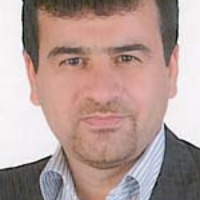Highlight of Iran's Soft Power Resources Case Study of the Constitution of Islamic Republic of Iran
Author(s):
Abstract:
This article aims to survey resources and components on Iran’s soft power in this legal document. After utilizing documents and quantitative content analysis, the researcher aims to answer this question that ‘what are the most salient soft power resources in the constitution of Iran and what factors are involved in it?’ The results of this article show that there are different kinds of cultural, political, economical and scientific soft power resources in this legal document. Among these factors, cultural resources are the most salient and frequent ones. Among these resources, spiritual values, protection of political-humanistic rights, supplying the basic needs of people and correct applied education are the most salient and frequent ones that can promote the soft power of Islamic Republic of Iran. In addition to these factors, there are other resources, such as Islamic-Iranian identity, political and cultural independence, religious beliefs, social consensus, foreign policy, self-sufficiency, lifting the deprivation, national production and the utilization of science and techniques in the constitution can promote the possibility to produce soft power.
Keywords:
Language:
Persian
Published:
Journal of Cultural Guardianship of The Islamic Revolution, Volume:4 Issue: 10, 2015
Pages:
29 to 68
https://magiran.com/p1413019
سامانه نویسندگان
مقالات دیگری از این نویسنده (گان)
-
The economic grounds of the formation of the revolution in the thought of Ayatollah Mohammad Ali Shahabadi (RA)
Seyyed Mohammadjavad Ghorbi
Journal of State Studies of Contemporary Iran, -
American international order in the period of historical transition; Revival of the empire in the context of geopolitics
Saeed Pirmohammadi *, Aliakbar Jafari
Journal of American Strategic Studies, -
The position of ballistic missile development policy in Iran's independent security Strategy
Mohammad Naderi Chelav, *
Journal of Political Strategy,



